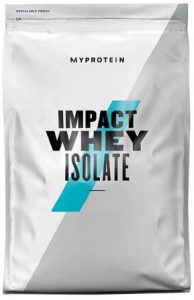Dairy is a good source of protein. For example, your protein shake is made of the meadow. Because this is a milk product, it contains lactose (milk sugars). Not all athletes can process lactose equally well. Are you lactose intolerant? Or maybe you’ll soon have bloated belly with certain nutrients. Then drinking a protein shake can also give you nasty complaints. So it is not easy for everyone to find a protein supplement that they can tolerate well and drink with pleasure, not entirely insignificant! We took a closer look at this topic and scraped together the most important information for you. In this blog on, I will tell you more about lactose and protein. This way, you can also get enough proteins with lactose intolerance.
Lactose and protein
In this article, I will give you more information about lactose and proteins for athletes. So I will discuss the following points with you.
- What is lactose intolerance?
- What are the symptoms of lactose intolerance?
- What are the alternatives to protein shakes?
- What should you look for in a protein shake?
What exactly is lactose?

Lactose is also called milk sugar. This sugar occurs naturally in milk (products) and is considered sugar under the well-known term carbohydrates. To convert lactose to glucose and galactose, we need lactase. This enzyme makes the lactose in the intestines digestible.
Lactose intolerance
When the body produces little to no lactase enzymes, we speak of lactose intolerance. The lactose is not digested properly, and we can not absorb the undigested lactose any further. This can lead to excessive acid and gas production in the stomach and intestines. As a result, we experience abdominal pain, cramps, diarrhoea, nausea and bloating. This depends on the amount of lactose that needs to be digested. Also, of course, it is different for each person to what extent the enzyme lactase does its job.
There are several methods to test whether you are lactose intolerant or not. When you conclude that your body tolerates lactose badly, we recommend avoiding this altogether. Now it is not one of the easiest tasks to avoid this completely. A lot of dairy foods contain more milk sugars than you might think. For example, many dairy products will contain lactose and proteins. A protein powder is a hugely important product to take a close look at before purchase. Always check the composition and labels on the packaging. A protein blend often consists of multiple protein sources; the first ingredients are the most commonly used in the product. Normal whey protein, also called whey concentrate, is often worse tolerated than whey isolate when lactose intolerance.
Does a suitable protein shake?

So what exactly about lactose and protein? Can you use a protein shake? Protein shakes are supplements that easily increase our protein intake. In principle, it is not necessary to use a protein shake. You can also get your protein needs through your normal diet. It is only important that you ensure sufficient protein in your nutrition schedule and schedule the timing so that you recover sufficiently after your workout. Most protein shakes are based on milk, which makes them rich in lactose. Depending on the intolerance, most protein shakes can therefore be poorly tolerated. Nowadays, however, more and more alternatives are being sought for the Wei shakes made. For example, there are protein shakes made from another protein source of Wei, which means that they contain little to no lactose.
Whey isolate at mild intolerance

If you have slight lactose intolerance, you can consider whey isolate and try it out. A whey isolate is purer protein than whey concentrate because it is filtered further. An isolate is largely free of milk sugar and lactose. Regular whey concentrate and also casein protein is often poorly tolerated by people with lactose intolerance. What can we do best to take a protein shake and reduce the symptoms as far as possible? Egg protein, pea protein, soy protein and beef protein are good alternatives. Soy protein is equivalent to amino acid profile to a good piece of beef and a cheaper and good alternative to milk protein.
Shakes for vegans
For vegans and vegetarians, soy protein or pea protein is a good option. The Body and Gym Real Vegan Protein is made from 100% Pea protein. If you prefer not to drink soy protein because of a soy allergy, this can be a perfect solution—ideal for lactose intolerance and a soy allergy.
The biological value of the protein plays an important role. The number of essential amino acids and their dosage determines how high this value is in a protein. For example, pea protein has a lower dosage of amino acids than egg protein. Soy and beef are almost the same in terms of biological value. What often happens is that one is afraid of too short of essential amino acids. You can always take this into account by taking extra amino acids and eating varied and energy needs.
Lactose-free protein shakes
Lactose and proteins don’t seem to go well together, because many protein shakes contain lactose. Fortunately, there are many alternatives available today. Lactose intolerance does not have to get in the way of figuring out a good protein shake. Do you doubt if you’re lactose intolerant? Have this test, and do you suffer from certain symptoms that get in the way of taking a protein shake? Then look for an alternative such as soy protein, beef protein and so on. For vegans, we definitely recommend taking a look at Body and Gym Real Vegan Protein.


